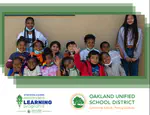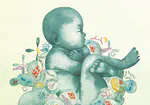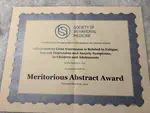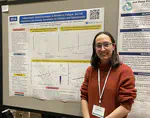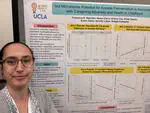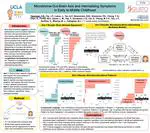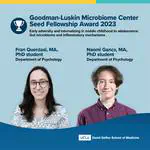About Me
I am a research scientist currently pursuing my PhD at the University of California, Los Angeles (UCLA). I am passionate about using my research skills to improve health and well-being.
At UCLA, I study how stress, adversity and social relationships shape health outcomes. Specificaly, my PhD research has focused on how psychosocial environments get ‘under the skin’ to influence mental and physical health trajectories by shaping development of the gut microbiome, immune system, and brain. In studying development of these interconnected biological systems, I seek to understand both vulnerabilities to environmental conditions as well as opportunities for prevention and intervention.
Because human biology, social processes, and health are all quite complicated, I’ve learned to leverage advanced statistical modeling, machine learning, and bioinformatics to derive insights from complex, messy, and varied data. I am adept at picking up new methods quickly and making connections across disicplines. Over the course of my PhD, I secured over $130k in funding for my research by winning 8 competitive fellowships/grant awards.
- Digital Health
- Continuous Physiological Monitoring (wearable devices)
- Intervention Research
- Behavioral Science
- Holistic Care for Chronic Illnesses
- Science Communication
PhD in Psychology, 2025 (Expected)
UCLA
MA in Psychology, 2021
UCLA
BA in Psychology, 2018
Pomona College
Skills
I clean and analyze data using R. I love Rmarkdown for in-depth commenting and sharing results.
Longitudinal regression, multilevel modeling, multivariate approaches, factor analysis, missing data handling
Clustering, classification, network analysis
Bash scripting, Git/Github, MATLAB, Python, Jupyter notebook, SPSS
Observational, experimental, quasi-experiemntal, and intervention studies
I write about research for technical and non-technical audiences
I regularly present insights to internal and external stakeholders and I give talks about my research
I have hired, trained, and mentored 15 junior staff on study design, data cleaning, reproducible analysis, and communication
Experience
My program of research is multi-disciplinary, spanning the fields of Developmental Psychopathology, Psychnoneuroimmunology, Neuroscience, Child Psychology, and Microbiology.
During my Ph.D. I’ve worked on multiple collaborative teams, both leading projects and serving as a statistical consultant. My work has been published in leading academic journals, and presented at international conferences.
- As part of a team of experts from multiple disciplines, I developed novel data processing pipelines for infant neuroimaging data.
- I worked in computational neuroscience and developmental psychopathology labs, collecting and analyzing biological, behavioral, and survey data.
- I managed 3 large, nationally funded research studies while leading a team of 10 research assistants, leading to 5 peer-reviewed publications and 3 conference presentations.
Non-Academic Writing
Featured Publications
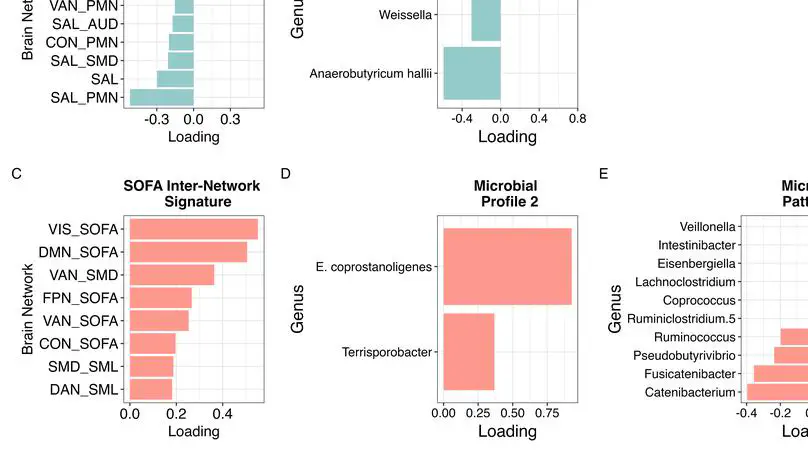
We know that the brain and gut microbiome influence mental health through the microbiome-gut-brain axis. But, there hasn’t been a lot of work focused on understanding how the axis works during childhood, a time when the brain and gut microbiome are both developing tremendously and many mental health issues initially emerge. Studying the brain and gut microbiome together is challenging since both are very complex and high-dimensional. One possible solution is to use multivariate machine learning techniques, such as sparse partial least squares regression (sPLS), to identify combinations of variables that maximize covariance with an outcome of interest. Using sPLS, we found one microbial profile, mostly comprised of microbes from the Clostridiales order and Lachnospiraceae family, was linked with depression/anxiety symptoms at school age via a brain signature characterized by connectivity within emotion-related brain networks. Results suggest one way the early life gut microbiome may contribute to mental health is through shaping functional brain development. It also gives some clues about which brain networks and microbes may be most involved in developmental psychopathology.
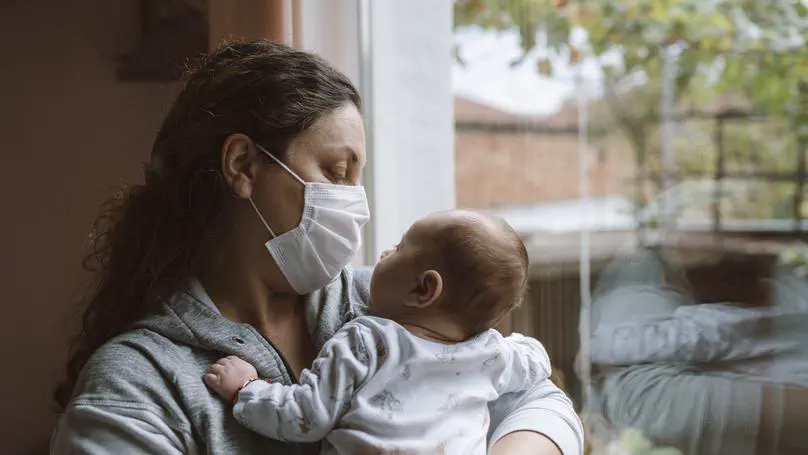
The COVID-19 pandemic and resulting public health directives led to many changes in families’ social and material environments. Prior research suggests that these changes are likely to impact composition of the gut microbiome, particularly during early childhood when the gut microbiome is developing most rapidly. Importantly, disruption to the gut microbiome during this sensitive period can have potentially long-lasting impacts on health and development. In the current study, we compare gut microbiome composition among a socioeconomically and racially diverse group of 12-month old infants living in New York City who provided stool samples before the pandemic (N = 34) to a group who provided samples during the first 9-months of the pandemic (March–December 2020; N = 20).
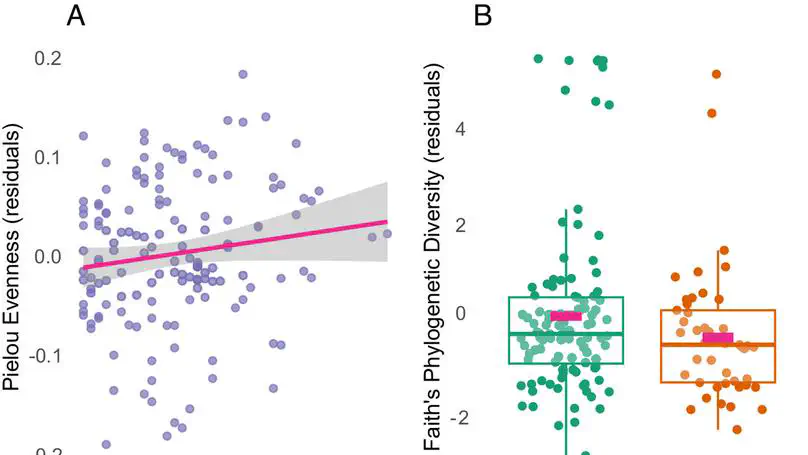
This study draws on a large longitudinal cohort to demonstrate that adversity experienced prenatally or during early childhood, as well as adversity experienced by the mother during her childhood, impacts the gut microbiome of second-generation children at 2 y old. Notably, some of the microbiome profiles linked to these types of adversity, especially at higher taxonomic levels, were similar to those associated with the child’s current and future socioemotional functioning. Additionally, microbes uniquely associated with adversity exposures or socioemotional functioning have similar immune-related functions within the gut, highlighting the need for further research into how generational adversity affects the gut microbiome’s functional potential.
All Publications
Full list of publications can also be found on my Google Scholar Page
Selected Presentations
Contact
Let’s chat!

